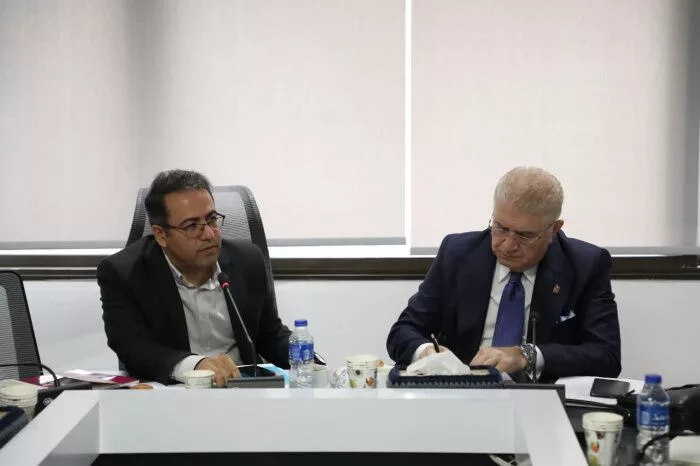
Iran and Turkey to Establish Joint Digital Economy Center
The Deputy Minister of Science, Research and Technology and Innovation announced plans to create a joint Iran-Turkey digital economy center.
The Deputy Minister of Science, Research and Technology and Innovation announced plans to create a joint Iran-Turkey digital economy center during a meeting with the president of the Eurasian Universities Union, emphasizing enhanced cooperation in digital economy and technology transfer.
Mohammad Nabi Shahiki expressed satisfaction with the meeting with Mustafa Aydın, president of the Eurasian Universities Union, while highlighting Iran's extensive scientific and technological capabilities and stressing the important role of technology parks in bridging industry and academia.
Expanding Technological Cooperation
Shahiki noted that Iran's 59 technology parks host over 16,000 startups and technology-based companies that play significant roles in innovation development. "Several cooperation proposals were discussed during this meeting," he said. "The most important include establishing joint Technology Transfer Offices (TTOs), collaborating in water technology, energy and artificial intelligence sectors, and implementing joint projects between Iranian and Turkish scientific and industrial research organizations with priority given to technology transfer to industry."
The deputy minister added: "One of the most significant outcomes was the agreement to establish a joint digital economy center. Additionally, plans were made to hold periodic joint startup events and create joint post-doctoral projects in modern agriculture, biomaterials and biotechnology fields."
Practical Education Model
President of the Eurasian Universities Union explained Aydın University's innovative approach to practical education and university-industry collaboration: "Since 2002, Aydın University has been the first institution to implement a vocational education system."
Aydın elaborated: "Our university mandates practical training even in humanities disciplines - students across all fields from health and technology to law, economics and fine arts must complete one or two semesters working in a company."
"During these internships, students implement their knowledge in real-world settings while employers are required to document what skills students learn," he continued. "At the internship's conclusion, employers must evaluate students based on university criteria. This process creates strong student-industry relationships and provides invaluable experience."
Industry-Aligned Curriculum
The Eurasian Universities Union president also described advisory committees comprising industry representatives that periodically review curricula to ensure alignment with Turkey's current economic needs.
With 10,000 annual graduates from Aydın University, Aydın noted: "We operate a center tracking graduate employment statistics, which shows 80% of our graduates enter the workforce immediately after graduation."










